
Bavaria, officially the Free State of Bavaria (German: Freistaat Bayern[ˈfʁaɪʃtaːt ˈbaɪɐn]; is a state in the south-east of Germany. With an area of 70,550.19 km2, Bavaria is the largest German state by land area, comprising roughly a fifth of the total land area of Germany. With over 13 million inhabitants, it is second in population only to North Rhine-Westphalia, but due to its large size its population density is below the German average. Bavaria's main cities are Munich, Nuremberg, and Augsburg.

Giovanni di Pietro di Bernardone, better known as Saint Francis of Assisi, was a mystic Italian Catholic friar, founder of the Franciscans, and one of the most venerated figures in Christianity. He was inspired to lead a life of poverty and itinerant preaching. Pope Gregory IX canonized him on 16 July 1228. He is usually depicted in a robe with a rope as belt.
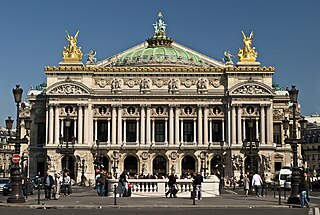
Opera is a form of theatre in which music is a fundamental component and dramatic roles are taken by singers. Such a "work" is typically a collaboration between a composer and a librettist and incorporates a number of the performing arts, such as acting, scenery, costume, and sometimes dance or ballet. The performance is typically given in an opera house, accompanied by an orchestra or smaller musical ensemble, which since the early 19th century has been led by a conductor. Although musical theatre is closely related to opera, the two are considered to be distinct from one another.
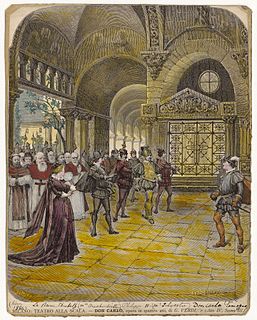
Don Carlos is a five-act grand opera composed by Giuseppe Verdi to a French-language libretto by Joseph Méry and Camille du Locle, based on the dramatic play Don Carlos, Infant von Spanien by Friedrich Schiller. In addition, several incidents, of which the Forest of Fontainebleau scene and auto-da-fé were the most substantial, were borrowed from Eugène Cormon's 1846 play Philippe II, Roi d'Espagne. The opera is most often performed in Italian translation, usually under the title Don Carlo.
This is a list of notable events in music that took place in the year 1990.
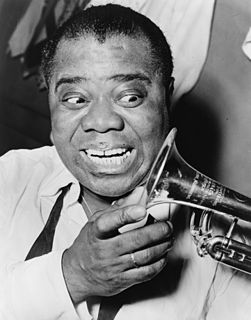
This is a list of notable events in music that took place in the year 1953.
This page indexes the individual year in music pages.
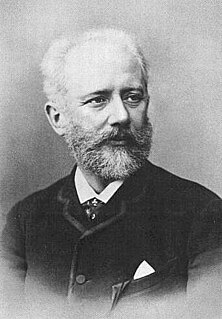
Swan Lake, Op. 20, is a ballet composed by Russian composer Pyotr Ilyich Tchaikovsky in 1875–76. Despite its initial failure, it is now one of the most popular ballets of all time.
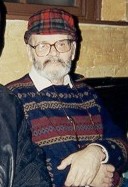
Lucio Fulci was an Italian film director, screenwriter, and actor. Although he worked in a wide array of genres through a career spanning nearly five decades, including comedies and Spaghetti Westerns, he garnered an international cult following for his giallo and horror films.
The music of Belgium is a cultural mix where Flemish Dutch-speaking and Walloon French-speaking traditions mix with those of German minorities and of immigrant communities from Democratic Republic of the Congo or other distant countries.

La forza del destino is an Italian opera by Giuseppe Verdi. The libretto was written by Francesco Maria Piave based on a Spanish drama, Don Álvaro o la fuerza del sino (1835), by Ángel de Saavedra, 3rd Duke of Rivas, with a scene adapted from Friedrich Schiller's Wallensteins Lager. It was first performed in the Bolshoi Kamenny Theatre of Saint Petersburg, Russia, on 29 November 1862 O.S..

Saturnino "Nino" Manfredi was an Italian actor, voice actor, director, screenwriter, playwright, comedian, singer, author, radio personality and television presenter.

Böhse Onkelz, sensational spelling of böse Onkel is a German rock band formed in Frankfurt in 1980. The band reunited in 2014. Despite mass-media criticism concerning their past as skinheads, several of their later records topped the German album charts. E.I.N.S. was their most successful album, with over 510,000 copies sold.

Libertad Lamarque Bouza was a Mexican-Argentine actress and singer, one of the icons of the Golden Age of Argentine and Mexican cinema. She achieved fame throughout Latin America, and became known as "La Novia de América". By the time she died in 2000, she had appeared in 65 films and six telenovelas, had recorded over 800 songs and had made innumerable theatrical appearances.

Andreas Scholl is a German countertenor, a male classical singer in the alto vocal range, specialising in Baroque music.

Notker Wolf is a German Benedictine monk, priest, abbot, musician, and author. He is a member of St. Ottilien Archabbey located in Bavaria, Germany, which is part of the Benedictine Congregation of Saint Ottilien. He previously was elected and served as the ninth Abbot Primate of the Benedictine Confederation of the Order of Saint Benedict. He was elected to his position as Abbot Primate in 2000 and ended his final term in 2016.

The Decameron is a 1971 anthology film written and directed by Pier Paolo Pasolini, based on the 14th-century allegory by Giovanni Boccaccio. It is the first film of Pasolini's Trilogy of Life, the others being The Canterbury Tales and Arabian Nights. Each film was an adaptation of a different piece of classical literature focusing on ribald and often irreligious themes. The tales contain abundant nudity, sex, slapstick and scatological humour.

Philippe Jaroussky is a French countertenor. He began his musical career with the violin, winning an award at the Versailles conservatory, and then took up the piano before turning to singing.

María Victoria Gutiérrez Cervantes is a Mexican actress, singer, and comedian. She is best known for starring in the Telesistema Mexicano sitcom La criada bien criada and its 1972 spin-off film of the same name as maid Inocencia.

Chiara Schoras is a German actress.
















